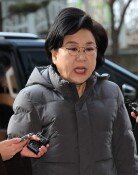Seoul keeps low key despite Pyongyang’s words of threat
Seoul keeps low key despite Pyongyang’s words of threat
Posted June. 08, 2020 07:45,
Updated June. 08, 2020 07:45
Since Kim Yo Jong, chief of North Korea’s United Front Department, criticized anti-Pyongyang propaganda leaflets sent by North Korean defectors’ groups in the South, the North has been intensifying condemnation of the South Korean government. The United Front Department under Kim Yo Jong blasted the South on Friday, threatening the closing of the inter-Korean liaison office and the complete dismantlement of the Kaesong Industrial Complex. Pyongyang’s propaganda media “Uriminzokkiri” despised the Moon Jae-in administration’s policy of virtuous circles between South and North Korea, and North Korea and the U.S. “The two Koreas should uphold the provisions under the agreements between the leaders of the two Koreas including the Panmunjom Declaration,” the South Korean Unification Ministry said Sunday.
Sending propaganda leaflets to the North, which Pyongyang has raised issue, is a realm of private organizations, and is a matter that requires thorough time-consuming review before taking any action. Meanwhile, South Korean government is moving to enact a law banning such campaigns soon after Kim Yo Jong made the statement. Despite this, the North has further intensified its condemnation of the South, revealing that it is still hardly satisfied with such dovish acts by the South. Even so, the Moon Jae-in administration is constantly standing by Pyongyang.
The South Korean government excluded bereaved families of soldiers fallen in the Second Yeonpyeong Naval Battle and the sinking of the warship Cheonan from the list of invitees at the Memorial Day ceremony, before including them only belatedly on Saturday. This cannot be considered a simple mistake and might be related to the presidential office’s intention not to upset Pyongyang. If Seoul is mindful of political ideology and consideration of Pyongyang in making judgment even for an event aimed at remembering and paying respect to the fallen compatriots, the very foundation of South Korea’s national security will inevitably be on a shaky ground.
Security issues both at home and abroad are increasingly grave. The North’s repeated condemnations of the South could be partly aimed at its internal consolidation, but they could also be a prelude to the disclosing of new weapons or additional provocations to increase its bargaining power in negotiations with the U.S.
Amid this situation, U.S. President Donald Trump ordered the Defense Department to reduce about 9,500 soldiers from the U.S. troops stationed in Germany by September. Since the measure is being taken while Washington and Berlin are in dispute over sharing of defense costs, it could have rather significant ramifications on South Korea, whose negotiations with the U.S. over defense cost sharing remain stalled for a prolonged period of time. Washington is showing a subtle difference in its stance from Seoul by emphasizing international collaboration, as Seoul is moving to accelerate efforts to improve inter-Korean relations. Seoul’s low-key response towards Pyongyang should never lead to the North’s misjudgment over security situation, which is getting increasingly serious.







